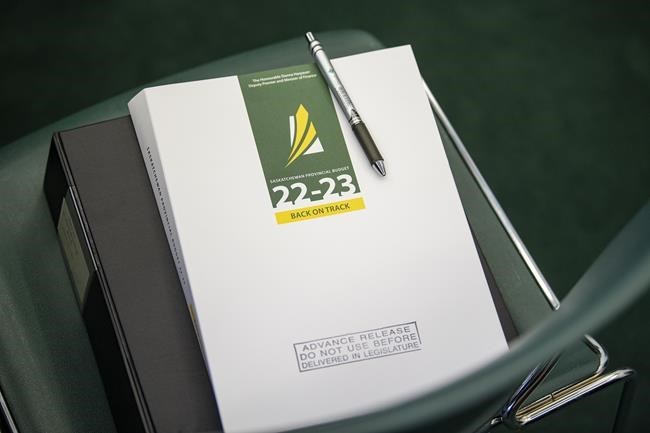REGINA ŌĆö Saskatchewan tabled its 2022-23 spending plan on Wednesday. Here's a look at some of the winners and losers:
WINNERS
Agriculture producers: The province is expanding the Saskatchewan Value-Added Agriculture Incentive to give producers a tax credit of up to 40 per cent for projects worth more than $600 million. Qualifying projects include canola crush facilities, pea protein processors, oat milling operations and cannabis oil facilities.
Film industry: The government is giving $8 million to the Creative Saskatchewan Production Grant Program to help boost the film and television industry. Only Saskatchewan labour, goods and services will qualify.
People needing surgeries: More than $21 million will address Saskatchewan's growing backlog of surgeries, worsened by the COVID-19 pandemic. The province says that within three years it will bring its surgical wait-list down to pre-pandemic levels.
LOSERS
Smokers and entertainment-goers: Taxes are going up for smokers and those who attend large events. Starting Thursday, each cigarette will be taxed two cents more, raising the cost of a pack of 20 cigarettes by 40 cents. Taxes will also increase eight cents per one gram of loose tobacco. In October, the province is adding a six per cent provincial sales tax on admission fees and entertainment costs like Roughrider games and movie theatre tickets.
Supervised consumption sites: No government funding for the third year in a row for Prairie Harm Reduction, which has advocated for government funding. In 2021, more than 300 people in the province died from overdoses.
Schools: Education is getting a one per cent increase in funding, despite the Saskatchewan Teachers' Federation calling for an increase of nearly five per cent. This year's education budget also includes a two per cent salary increase as part of the teachers' collective bargaining agreement.
This report for The Canadian Press was first published on March 23, 2022.
The Canadian Press



